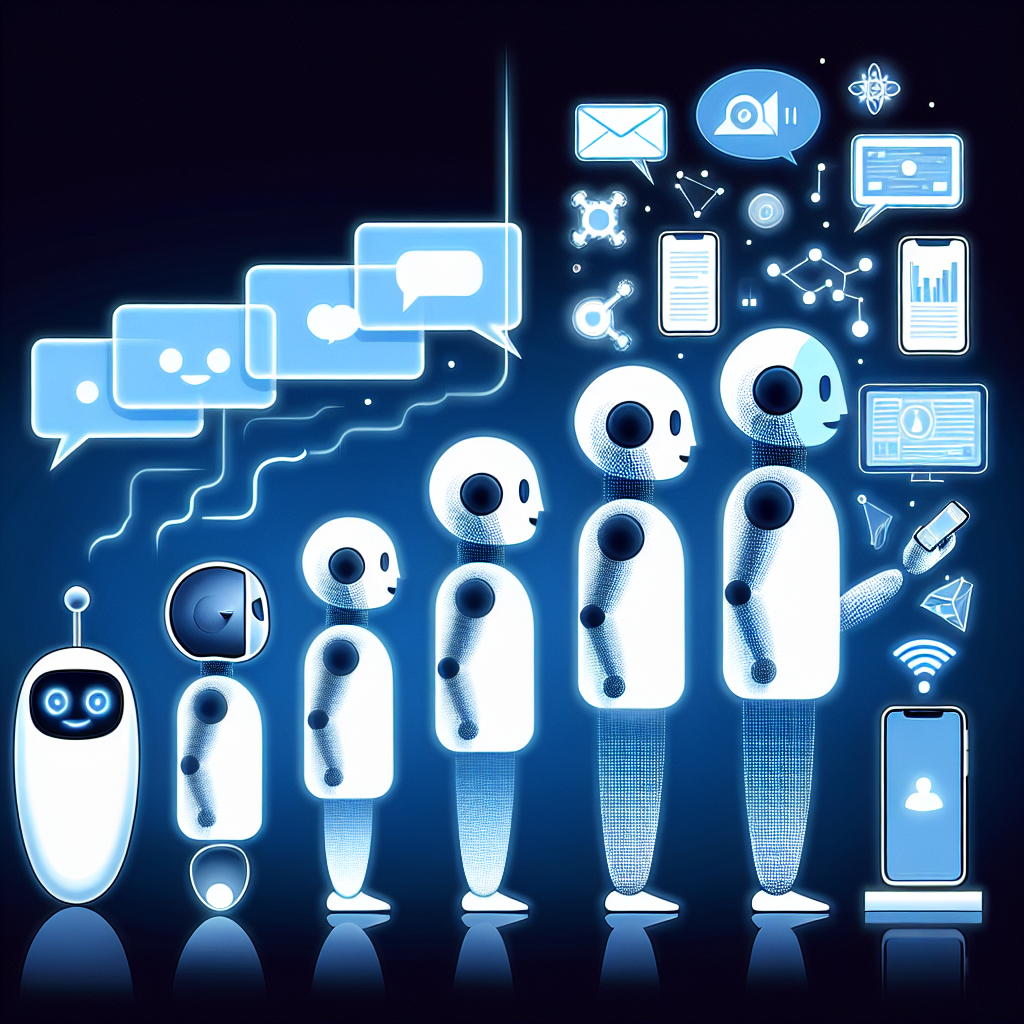Sure! Here’s the rewritten content, keeping the HTML tags intact:
<br />
<p>In recent years, artificial intelligence (AI) has evolved from a theoretical idea into a practical tool that enriches our everyday experiences. From the basic chatbots of the early 2000s to advanced personal assistants, AI applications have infiltrated numerous facets of our lives. This progression has transformed our interaction with technology, fundamentally changing our communication, productivity, and decision-making habits.</p><br />
<h2>The Evolution of AI Applications</h2><br />
<h3>Early Chatbots</h3><br />
<p>The journey started with primitive chatbots, which utilized simple algorithms to respond to user inquiries. These initial versions were often restricted in their capabilities, mainly serving in customer service roles. They could handle basic questions but frequently struggled with more complex demands. Nonetheless, even in their rudimentary state, they established a foundation for future AI advancements, offering businesses cost-effective methods to manage customer interactions.</p><br />
<h3>Advancements in Natural Language Processing</h3><br />
<p>With technological advancements, chatbot capabilities also evolved. The emergence of Natural Language Processing (NLP) enabled these systems to comprehend human language with improved efficiency. This breakthrough allowed AI to partake in more fluid conversations, interpret context, and customize responses based on individual user preferences. As a result, chatbots became more effective, leading to their widespread use across a variety of sectors, from retail to healthcare.</p><br />
<h3>The Rise of Personal Assistants</h3><br />
<p>Building on the successes of chatbots, the creation of intelligent personal assistants such as Siri, Google Assistant, and Amazon Alexa signified a major shift in our interaction with AI. These applications utilize advanced machine learning algorithms, voice recognition technology, and extensive information databases to deliver personalized experiences to users.</p><br />
<p>Users can instruct these assistants to set reminders, manage smart home devices, play music, and respond to intricate questions. This level of engagement has integrated personal assistants into the daily routines of many, highlighting AI's potential to boost productivity and simplify tasks.</p><br />
<h2>Impact on Daily Life</h2><br />
<h3>Enhancing Productivity</h3><br />
<p>AI applications have revolutionized workplaces by automating mundane tasks, organizing meetings, and handling emails. Tools like Microsoft 365’s Cortana and various project management systems use AI to enhance team collaboration and improve workflow efficiency. These applications not only save valuable time but also minimize human error, allowing employees to concentrate on higher-level strategic decisions.</p><br />
<h3>Personalized User Experience</h3><br />
<p>The capability of AI to analyze user behaviors and preferences allows apps to provide customized content and suggestions. Streaming platforms like Netflix and Spotify utilize machine learning algorithms to recommend movies and music tailored to individual tastes. This level of personalization also extends to e-commerce sites, where AI anticipates consumer behavior and presents personalized shopping suggestions, thereby enriching the overall user experience.</p><br />
<h3>Social Interaction and Emotional Support</h3><br />
<p>AI applications have ventured into the realm of social interaction, offering companionship to those who may feel isolated. Mental health apps like Woebot provide conversational support through AI, helping users engage in cognitive behavioral therapy techniques. While these technologies cannot replace human interaction, they serve as valuable resources for individuals seeking support.</p><br />
<h2>Ethical Considerations and Challenges</h2><br />
<p>Despite their advantages, the proliferation of AI applications poses several ethical dilemmas. Concerns regarding privacy, data security, and potential bias in algorithmic decision-making are paramount in ongoing debates about AI governance. As AI technologies continue to advance, finding a balance between innovation and ethical accountability will be crucial for stakeholders across all industries.</p><br />
<h2>The Future of AI Apps</h2><br />
<p>Looking forward, the potential uses of AI are limitless. Ongoing advancements in machine learning, augmented reality, and even emotional recognition are likely to produce more sophisticated personal assistants capable of forming deeper emotional connections. As these apps become commonplace, the challenge will be to ensure they enhance human experiences without undermining ethical values.</p><br />
<h3>Conclusion</h3><br />
<p>The evolution from chatbots to personal assistants showcases the remarkable progress achieved in AI technology. As these applications weave more seamlessly into our lives, they present unparalleled opportunities for boosting productivity, personalizing experiences, and offering support. However, addressing the challenges and ethical considerations surrounding AI will be essential to guarantee that these tools benefit humanity in a positive and responsible manner. The outlook for AI applications is bright, promising a transformative effect on the way we live, work, and interact.</p>
